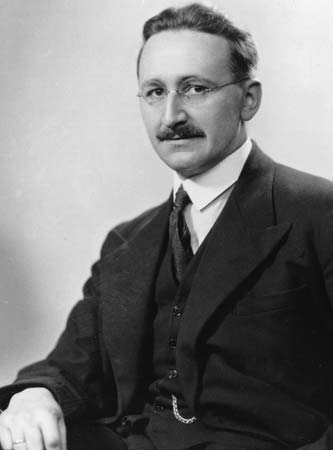Friedrich August von Hayek (Friedrich August von Hayek)

Austrian economist. Born in Vienna. The son of August von Hayek, a Prussian doctor in the municipal health service. At his father’s suggestion, Friedrich, as a teenager, read the genetic and evolutionary works of Hugo de Vries and the philosophical works of Ludwig Feuerbach. In school Friedrich was much taken by one instructor’s lectures on Aristotle’s ethics. In 1917, he joined an artillery regiment in the Austro-Hungarian Army and fought on the Italian front. Much of his combat experience was spent as a spotter in an aeroplane. Friedrich suffered damage to his hearing in his left ear during the war, and was decorated for bravery. Friedrich then decided to pursue an academic career, determined to help avoid the mistakes that had led to the war. After World War I, Friedrich earned his doctorates in law and political science at the University of Vienna. Afterward he, together with other young economists joined a private seminar known as the Austrian equivalent of John Maynard Keynes’s “Cambridge Circus.” In 1927 he became the director of the newly formed Austrian Institute for Business Cycle Research. In the early 1930s, at the invitation of Lionel Robbins, he moved to the faculty of the London School of Economics, where he stayed for eighteen years, becoming a British citizen in 1938. He spent most of his academic life at the London School of Economics (LSE), the University of Chicago, and the University of Freiburg. In 1984, he was appointed a member of the Order of the Companions of Honour by Queen Elizabeth II on the advice of Prime Minister Margaret Thatcher for his “services to the study of economics.” He was the first recipient of the Hanns Martin Schleyer Prize in 1984. In 1991, US President George H. W. Bush awarded Friedrich the Presidential Medal of Freedom, one of the two highest civilian awards in the United States, for a “lifetime of looking beyond the horizon”. In 2011, his article “The Use of Knowledge in Society” was selected as one of the top 20 articles published in The American Economic Review during its first 100 years. Friedrich was still publishing at the age of eighty-nine. In his book The Fatal Conceit, he laid out some profound insights to explain the intellectuals’ attraction to socialism and then refuted the basis for their beliefs. He died at the age of 92. (bio by: Shock)
Born
- May, 08, 1899
- Austria
Died
- March, 03, 1992
- Germany
Cemetery
- Neustift
- Austria

